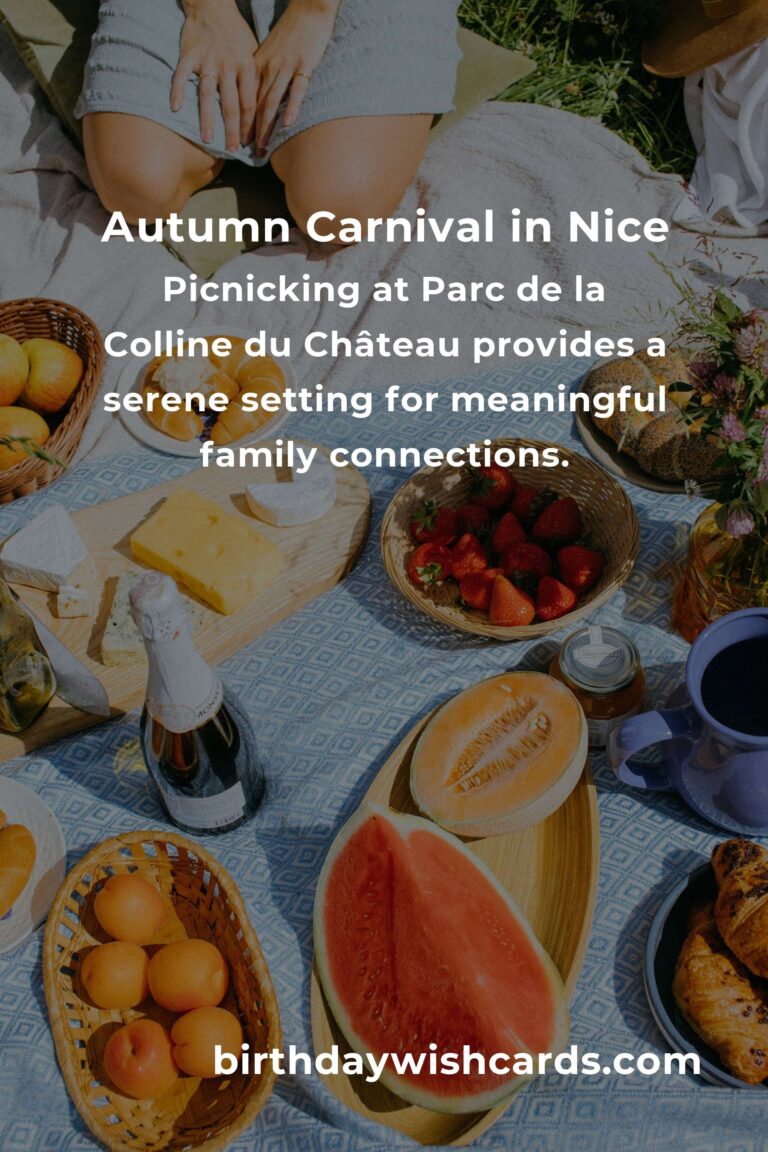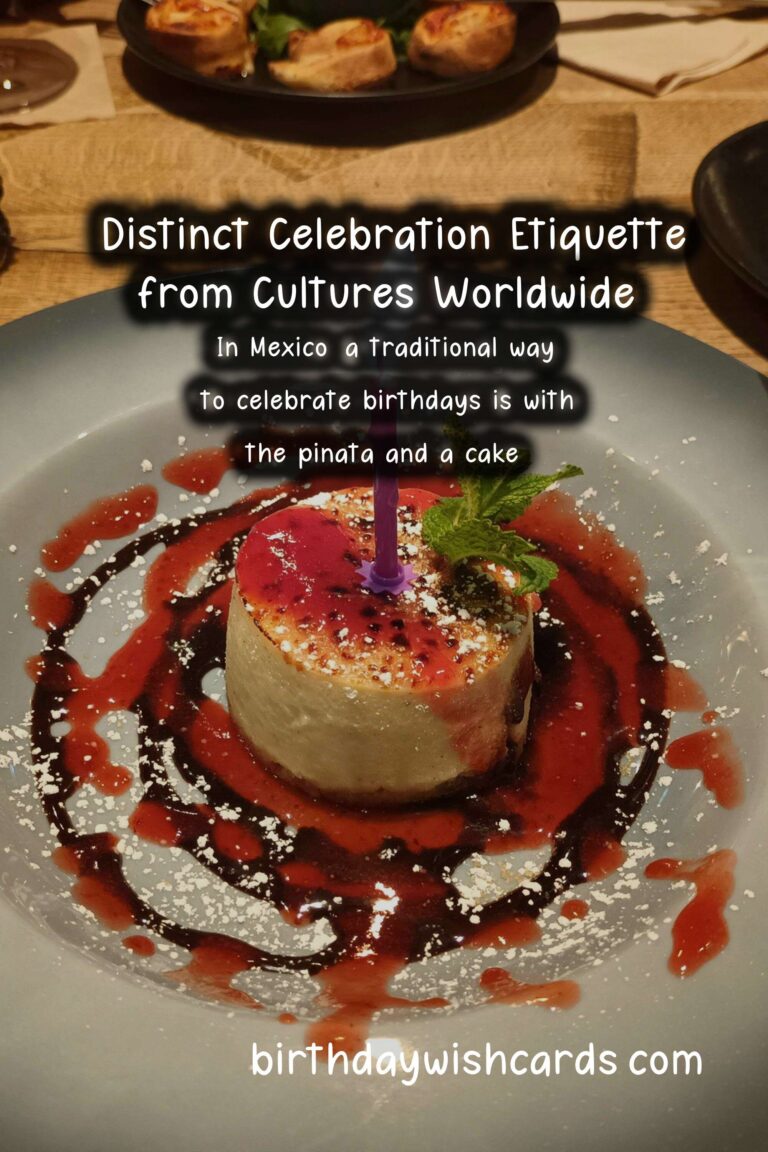
Celebrations are a universal phenomenon; they bring people together to mark significant events, whether they are personal milestones or cultural festivities. However, the etiquette surrounding these celebrations varies greatly across the world. In this article, we will explore some of the most unique celebration etiquette practices from different cultures that can leave you in awe.
1. The Art of Gift Giving in Japan
In Japan, gift giving is an essential component of many celebrations, particularly during festivals and weddings. The method of presenting gifts emphasizes respect and thoughtfulness.
When presenting a gift, the Japanese often use beautiful wrapping paper and carefully tie it with a string called mizuhiki. It is also customary to present the gift with both hands as a sign of respect. During the New Year, gifts of money called otoshidama are given to children in special envelopes, embodying traditional values of care and prosperity.
2. Toasting Traditions in Germany
In Germany, toasting is an important ritual during celebrations such as weddings and birthdays. However, there are specific rules to follow when raising a glass.
First, maintain eye contact with your fellow toasters, as it is believed that failing to do so can bring bad luck. Secondly, it is typical to toast with the phrase Prost!, and in the case of a birthday, it is customary to toast the celebrant. Ensure that you clink glasses using the lower part of your glass to symbolize good fortune.
3. Sharing Cake in Mexico
In Mexico, a traditional way to celebrate birthdays is with the piñata and a cake known as pastel. The custom of slice-sharing is particularly important, as it reflects generosity and community spirit.
When the cake is served, it is customary to sing the traditional Las Mañanitas, and the birthday person typically serves the first slice to a person they want to honor, reflecting the deep-rooted values of respect among family and friends.
4. The Unique Kissing Ritual in France
In France, kissing on the cheek is a common greeting and is also an integral part of celebrations. However, the number of kisses can vary depending on the region.
During celebrations, it is typical for friends and family to greet one another with a series of kisses, usually ranging from two to four, depending on local customs. This ritual emphasizes affection and closeness among loved ones.
5. The Significance of Long Banquets in China
Chinese celebrations, especially weddings and the Lunar New Year, often feature lavish banquets that can last for hours. The etiquette surrounding these meals reflects deep cultural values.
Guests are encouraged to try every dish presented, signifying respect for the host’s efforts. Toasting during meals is customary, and it is common for guests to stand and offer heartfelt wishes while raising their glass. The act of toasting with respect showcases the significance of relationships in Chinese culture.
6. The Silent Toast in Italy
In Italy, celebrating an event is often accompanied by toasts, but with a twist. The Italians have a unique tradition of the silent toast, especially during significant occasions.
Instead of clinking glasses, guests raise their glasses in silence, with a slight nod to acknowledge one another. This ritual reflects the Italian value of respect and solemnity during times of celebration.
7. Symbolic Foods in Jewish Celebrations
Jewish celebrations, such as Passover and weddings, are rich with symbolic foods that hold deep meanings. Each food item represents a different aspect of faith and community.
During Passover, unleavened bread (matzo) is eaten to symbolize the haste of the Exodus. At weddings, breaking a glass symbolizes the destruction of the Temple, illustrating the importance of both joy and sorrow in life. Sharing these foods during celebrations fosters communal bonds and remembrance.
8. Unique Dances in African Celebrations
African celebrations often involve vibrant dances that convey stories and histories, making them a crucial part of the etiquette during festivities. Each dance is rooted in cultural significance and shared values.
During significant events, such as weddings or tribal gatherings, participants may engage in traditional dances that require community involvement. These dances celebrate heritage and symbolize unity among participants, making them memorable aspects of celebrations.
9. The Ritual of the First Toast in Russian Culture
In Russia, toasting is a vital part of celebrations, especially during weddings or New Year festivities. However, the etiquette surrounding the first toast is particularly noteworthy.
The first toast must always be made by the host, and it usually focuses on happiness, health, and prosperity. Guests are expected to respond with heartfelt sentiments, emphasizing the role of communal fellowship and respect.
10. The Role of Music in Balinese Ceremonies
In Bali, music is an integral part of any celebration, especially during rituals such as weddings and temple ceremonies. The etiquette surrounding music reflects the cultural significance of honoring deities.
Balinese ceremonies include live traditional music and dance, where guests participate in shaping the experience. Silence is respected during offerings to the spirits, but lively music ignites joy and a sense of community once the offerings are complete. This etiquette embodies the balance between respect and celebration.
Conclusion
Celebration etiquette worldwide showcases the beautiful diversity of customs and traditions. Each culture has a unique way of expressing joy, respect, and community spirit through its rituals. By embracing these unique practices, we not only honor their significance but also enrich our own experiences.
Next time you attend a celebration in a different culture, remember these etiquettes, and participate respectfully to create unforgettable memories.
Celebrations are a universal phenomenon; they bring people together to mark significant events. In Japan, gift giving is an essential component of many celebrations. The Japanese often use beautiful wrapping paper and carefully tie it with a string. In Germany, toasting is an important ritual during celebrations. In Mexico, a traditional way to celebrate birthdays is with the pinata and a cake. 
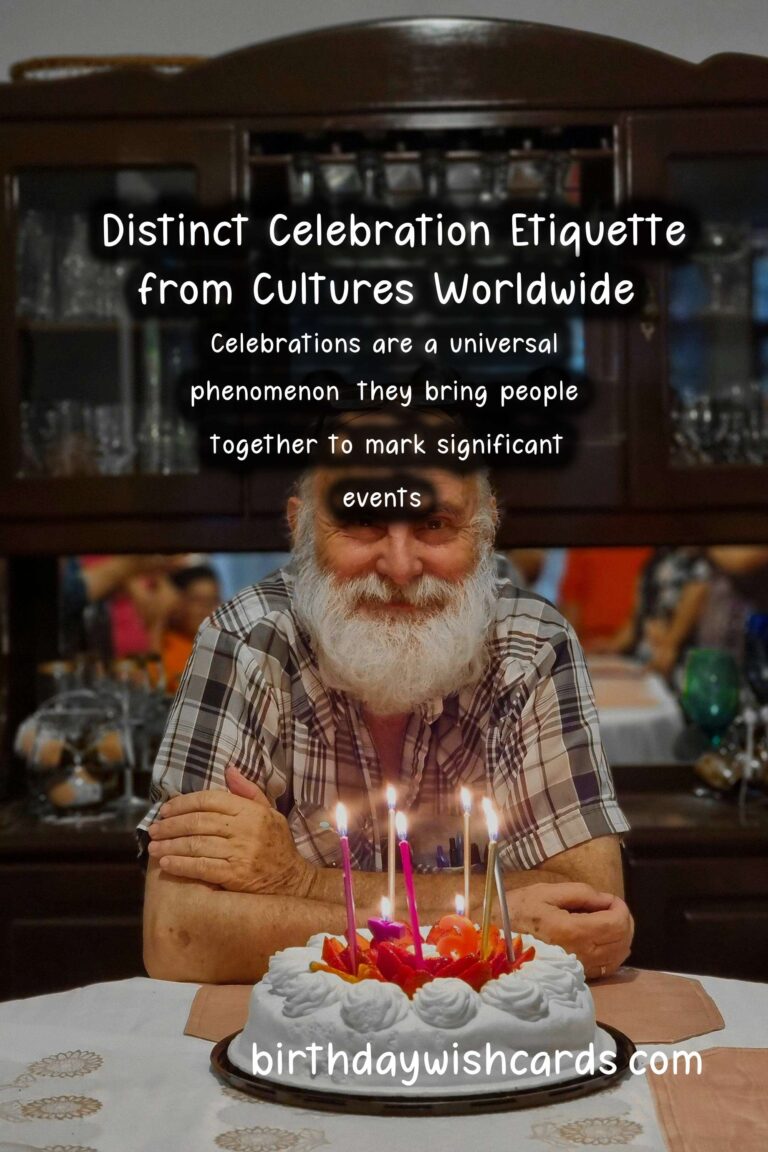

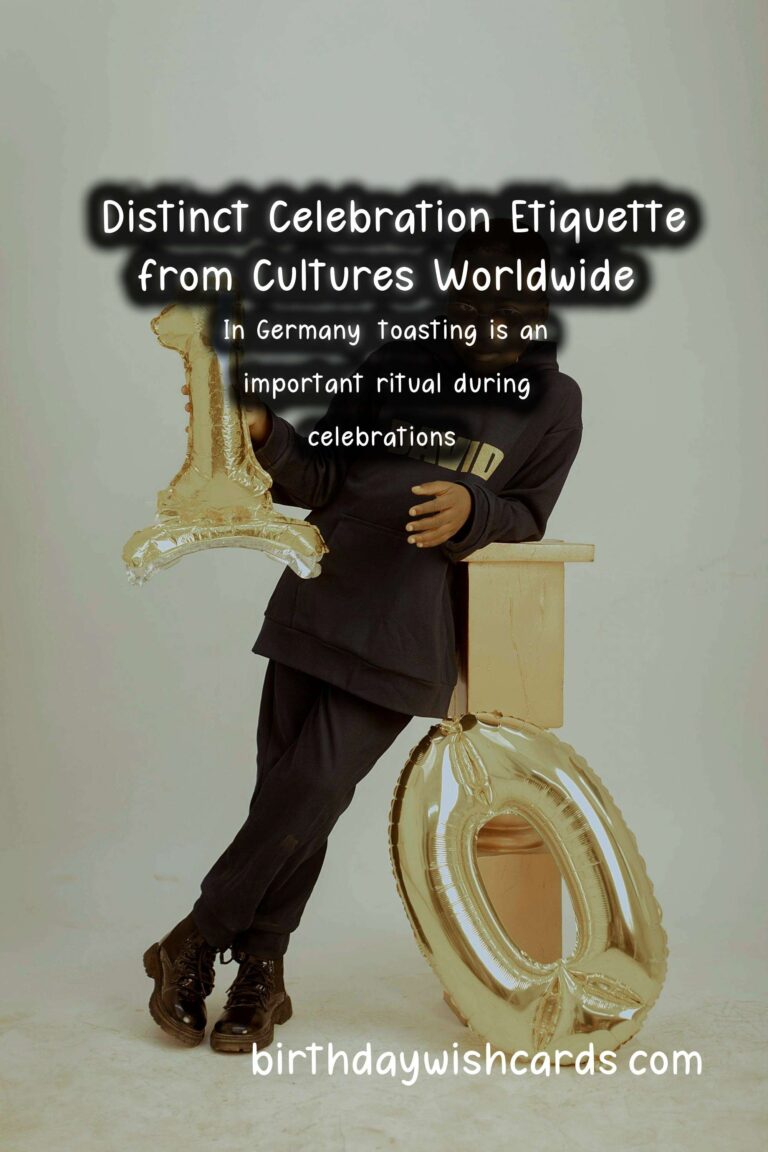
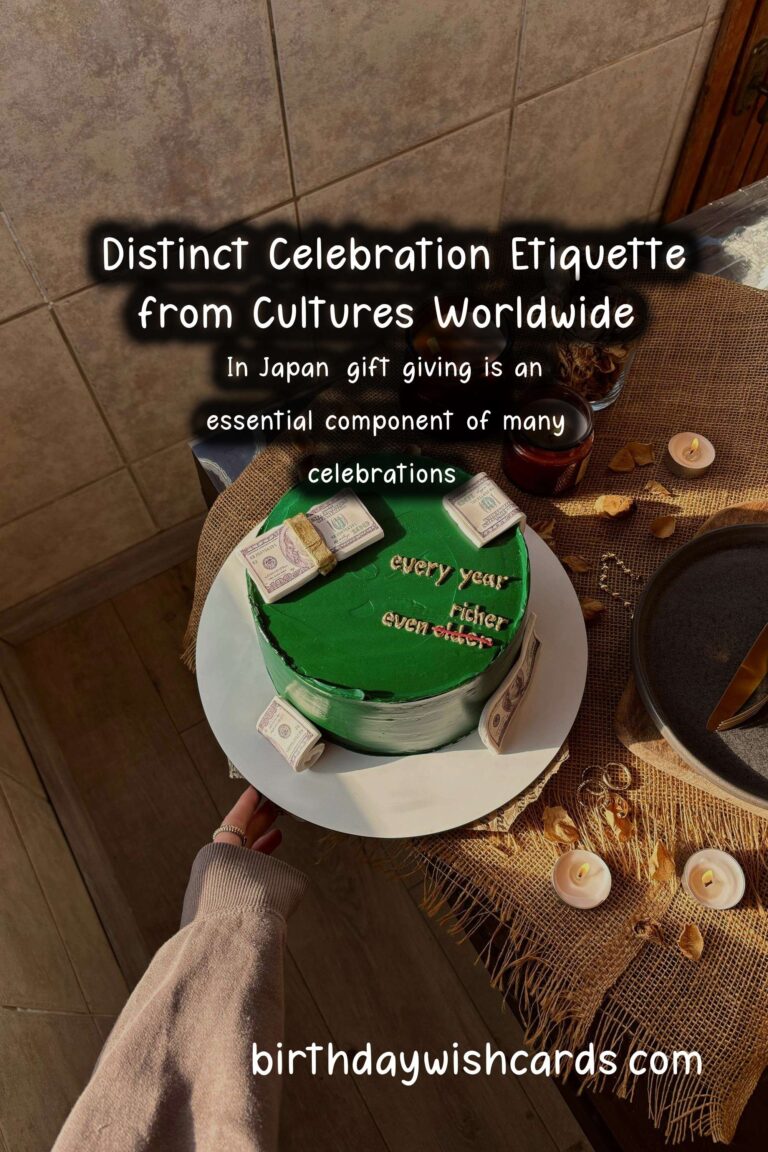

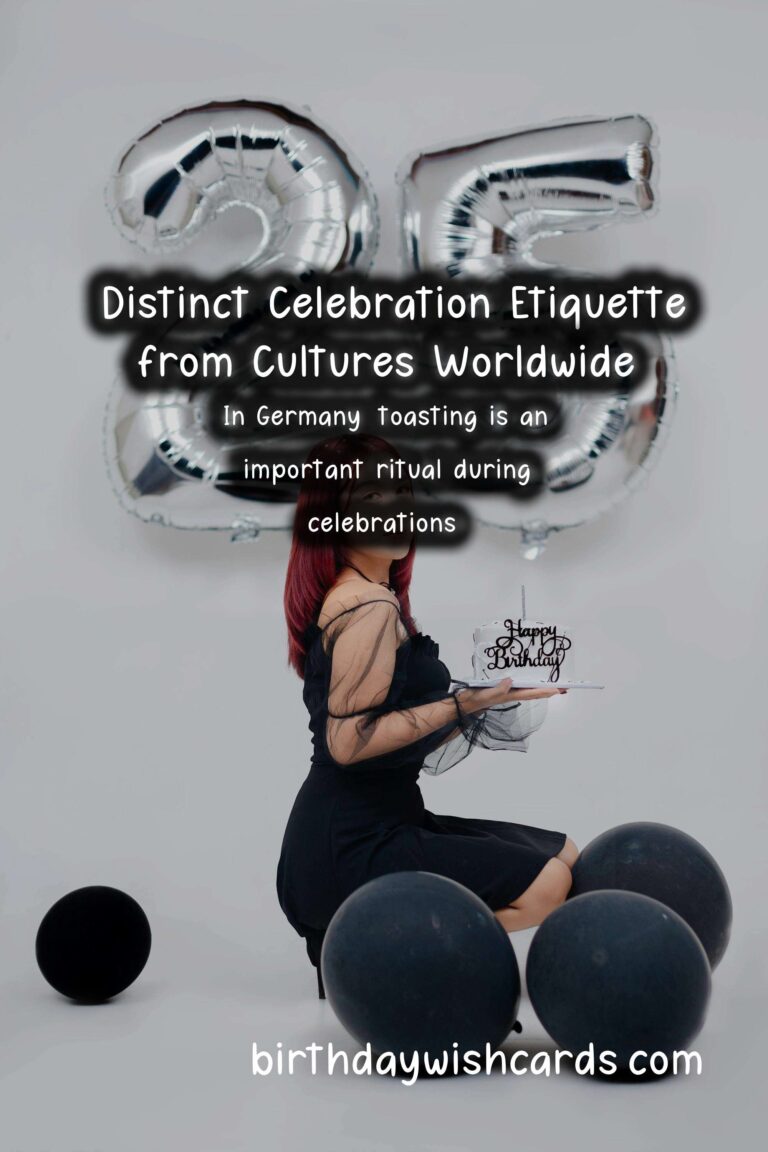
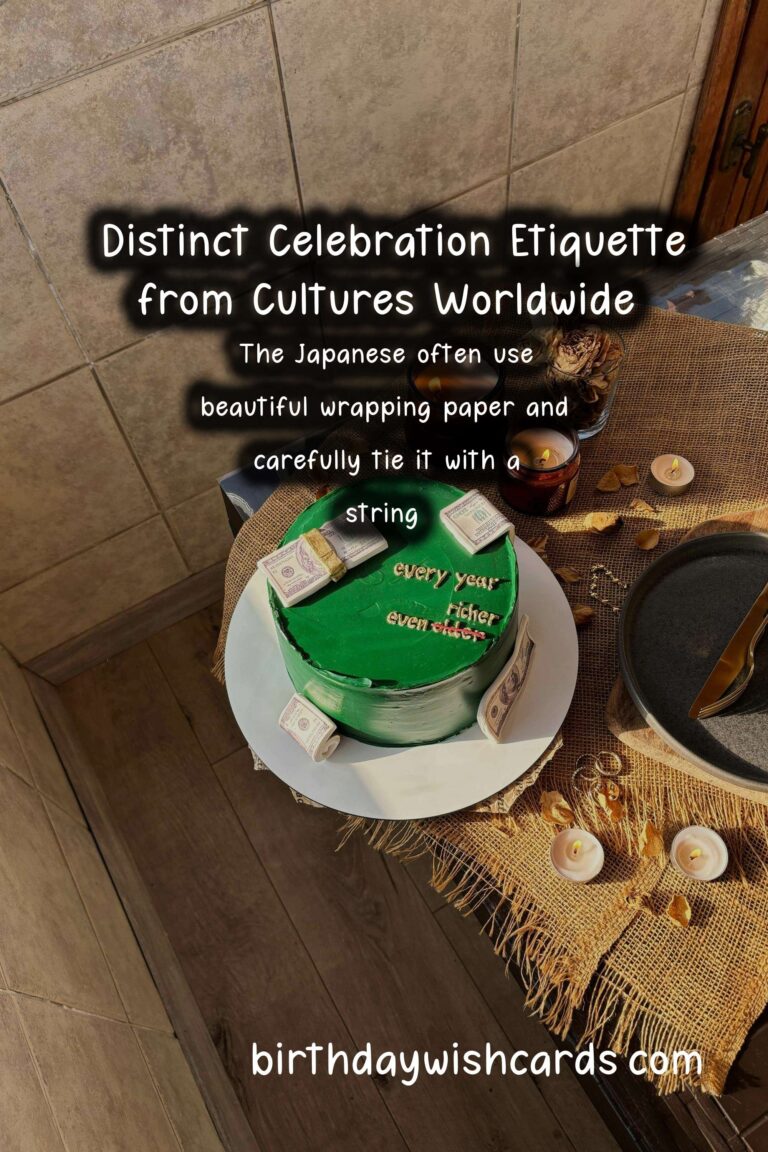
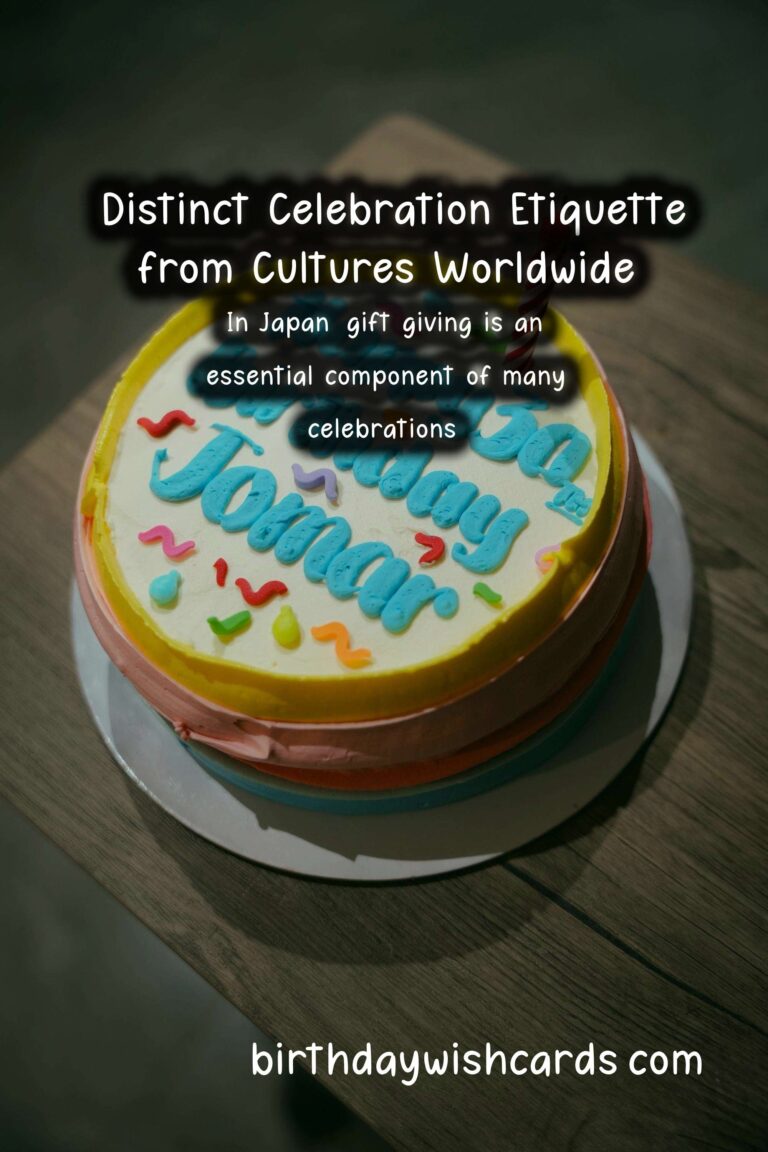

#CelebrationEtiquette #CulturalCelebrations


